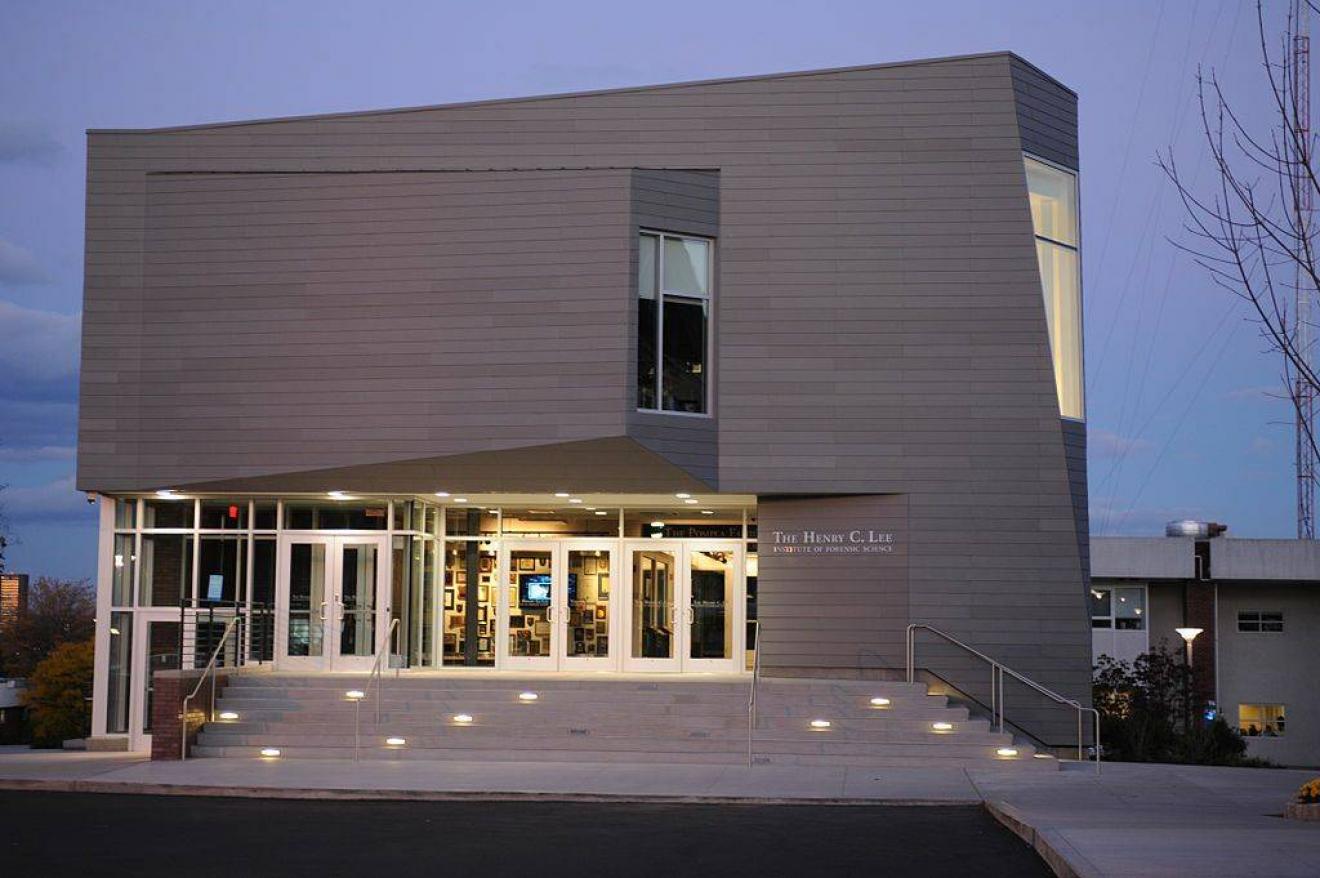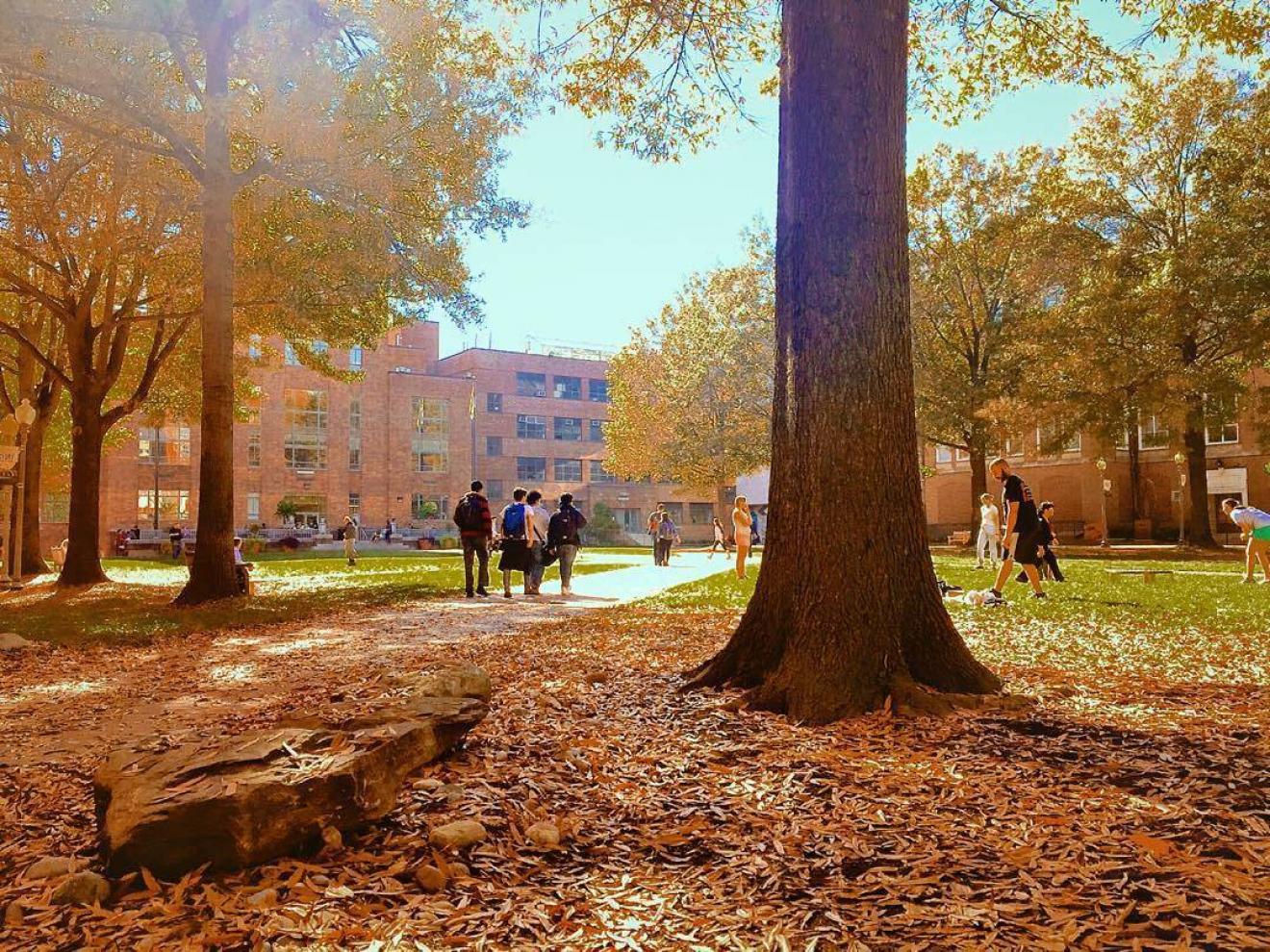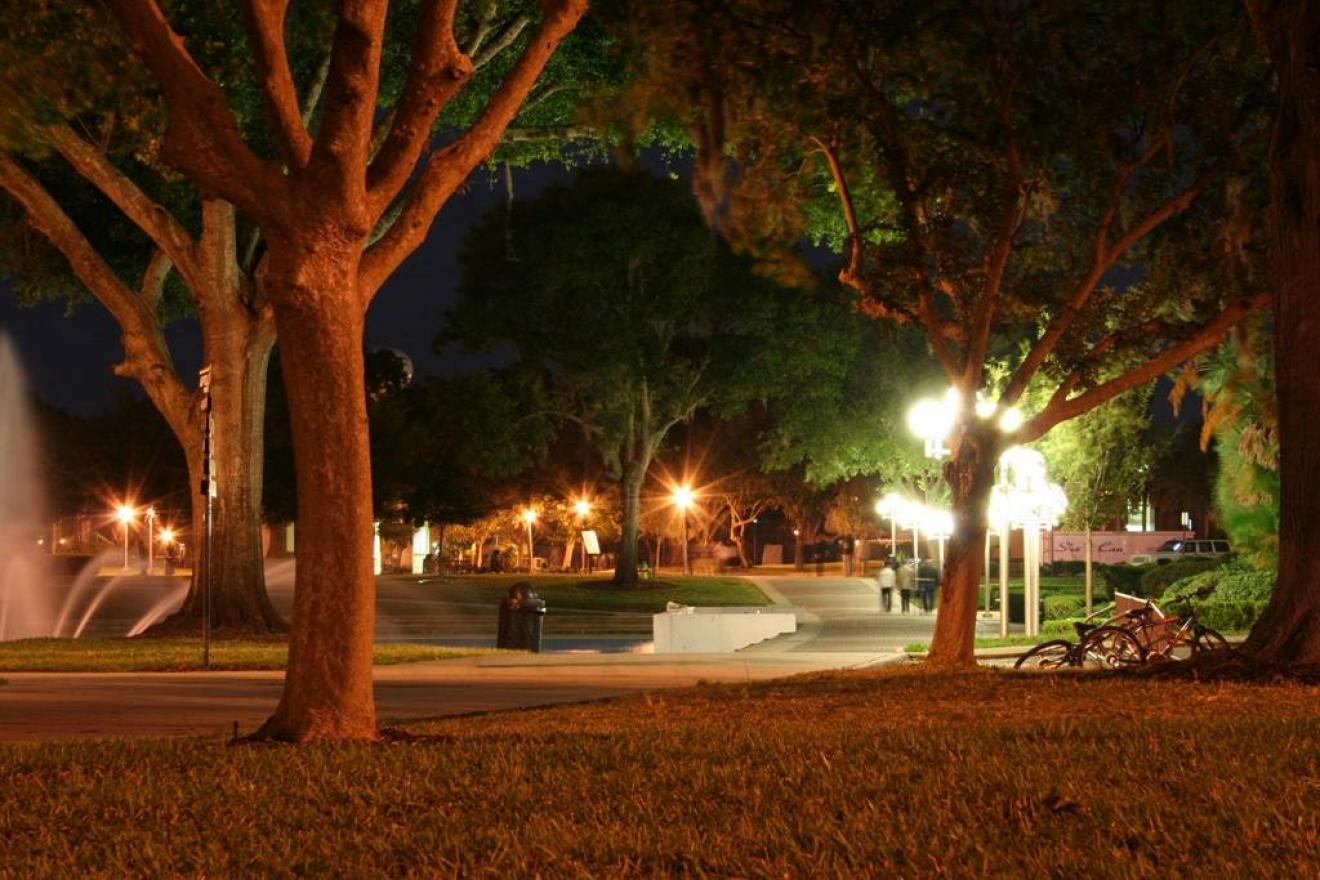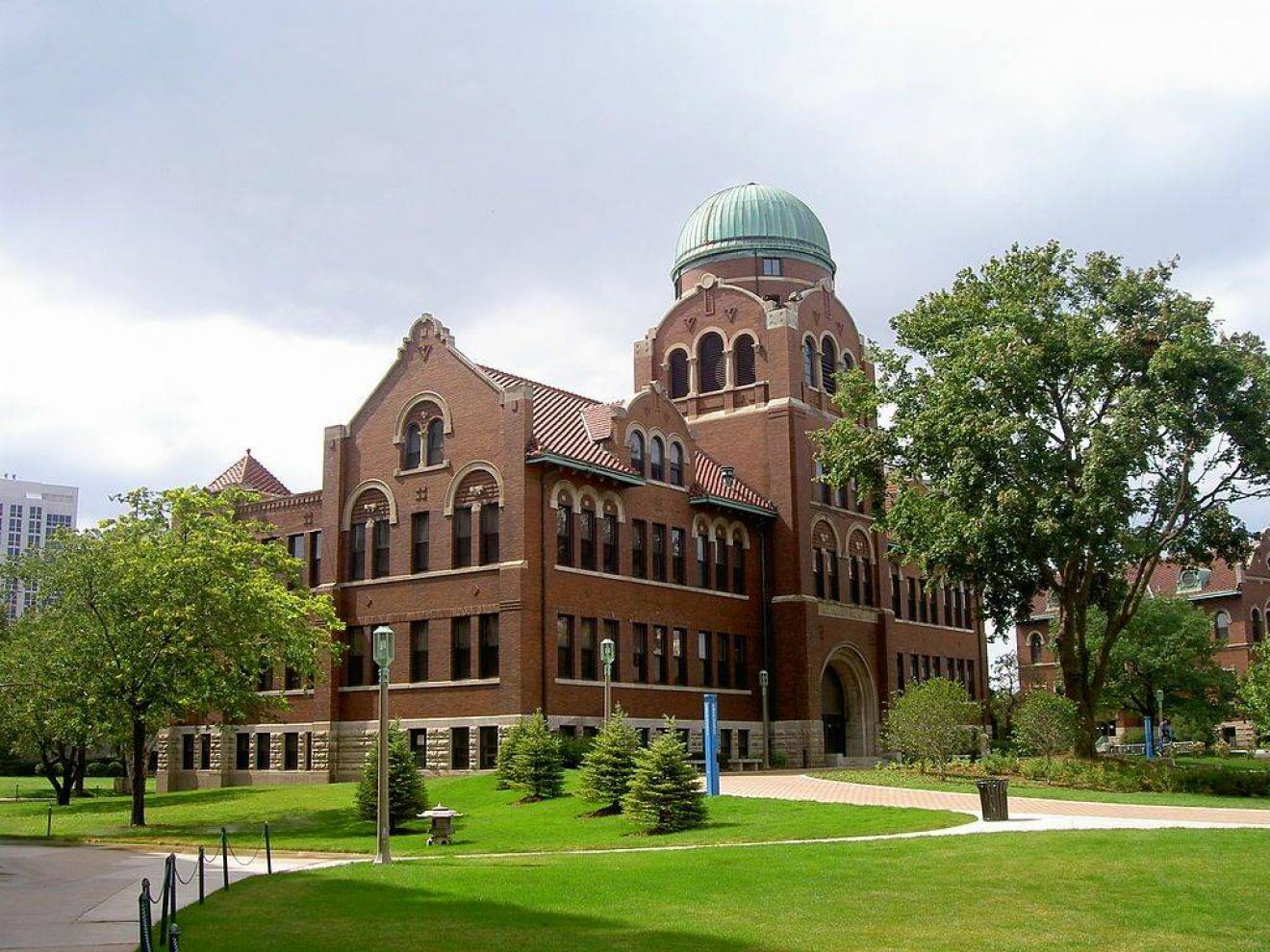Best Forensic Science colleges in the U.S.
A forensic science degree can lead to careers in a fast-growing and exciting field. You've seen crime shows on TV that depict teams of crime fighters, glamorously solving cases and protecting citizens. It's true that it takes a team of educated professionals to investigate a crime scene, conduct lab work, and produce evidence to convict bad guys. Though not always as glamorous as what we see on TV, an essential part of criminal investigation teams is forensic scientists.
Here, we'll offer a detailed look at the field of forensic science, what forensic science degree programs look like, the best forensic science colleges, and what types of jobs you can pursue after graduation from a forensic science degree program. Forensic science is a more diverse field than many people realize, so we'll include some of the lesser-known aspects of this highly rewarding, growing, and scientific field.
Best Forensic Science colleges in the U.S. for 2025

The University of New Haven’s Forensic Science program comes in at #1 in our list of best forensic science colleges. This program prepares students for a career in crime scene investigation at the local or federal level. This program includes courses in ballistics, chemistry, and psychology, along with general education requirements at the bachelor’s level. Classes are available both in-person and remotely, though some labs may include fieldwork and professional observation. Students at The University of New Haven can get experience in the form of internships and shadowing opportunities at the New Haven Police Department.

Syracuse University offers undergraduates the opportunity to enroll in their forensic science program, which is the first step for students interested in a career in criminal justice. It is common for students to take classes in chemistry and physics as an introduction to the broader field of forensic science. Syracuse offers a four-year path with opportunities to apply early to positions made available within their alumni network.

CUNY’s John Jay College of Criminal Justice program provides a foundation for undergraduate students that want to become involved in the justice system at multiple levels. Students interested in exploring this track learn skills like how to acquire and document evidence, and how to photograph a crime scene. Undergraduates at John Jay are required to complete an on or off-campus internship during their junior year, and complete calculus to graduate in four years.

For students interested in pursuing a forensic science degree in the state of Pennsylvania, Drexel University offers a competitive forensic track with professional observation opportunities throughout the Philadelphia metro area. Undergraduates are advised to enroll in theory and lab classes to gain hands-on experience that will be invaluable when they apply for professional roles post-graduation.
Virginia Commonwealth University, or VCU, has a forensic science degree program that emphasizes science courses and is organized to prepare students for professional roles immediately upon completion of their bachelor's degree. This program is structured to be completed onsite at VCU and provides students a range of local internship opportunities and seminars to further their understanding of crime scene investigation through work in on-campus forensic laboratories.

George Washington University’s Forensic Science department offers classes geared towards students preparing to enter into the field of criminal justice as a police officer, forensic scientist, or private investigator. Outside of the classroom, students have opportunities on campus to join forensic science clubs and secure internships in the Washington D.C. metro at agencies like the U.S. Department of Defense, and the FBI.

Hofstra University offers a bachelor’s degree in forensic science for students in Long Island that have an interest in crime scene investigation. Courses in this program include a combination of chemistry, physics, and eye-witness testimony, and students are recommended to declare their forensic science major before their junior year to complete the program before graduation. Anyone considering the school should note that Hofstra has a large network locally to assist recent graduates in post-graduation job placement.

Texas A&M-College Station’s forensic science program is organized for students interested in pursuing a criminal justice track. Applicants should note that lab instruction and professional internship experience are critical to this major and that graduates typically enter the workforce immediately after graduation if they don’t plan on pursuing a master’s program. Students in this program can take classes in ballistics, fingerprinting, and fire science.

The University of Central Florida’s College of Criminal Justice is a top school in the Southeast for students interested in forensic science. Their forensic science program fosters professional growth for those interested in biochemistry, scientific evidence, and lab work. This program has been around since 1974, and the school expects job opportunities to climb up to 11% by 2029.

For Chicago residents with aspirations of pursuing a degree in forensic science, Loyola University Chicago offers a four-year program designed to prepare students for jobs in the field of criminal justice immediately after graduation. Students are advised to take classes in chemistry and anatomy, as well as in-person labs to gain experience in different roles within the investigative process. Many students elect to pursue internships locally at police precincts and local federal agency offices like the FBI Chicago Field office.
Top schools offering Forensic Science degrees in the U.S.
What is Forensic Science?
Forensic science is one of the fastest-growing fields available to college-goers today. Aspiring forensic science professionals should pursue formal training at a forensic science college or university to gain the necessary technical and scientific skills to participate in criminal investigations, conduct lab studies, and beyond. Forensic science colleges offer a range of degrees, from associate and bachelor's programs to master's degrees and doctorates.
Forensic science is an interdisciplinary field that draws on areas like pathology, toxicology, psychiatry, biology, and chemistry. In this way, you can expect to complete diverse coursework and experiential learning opportunities to expand your horizons.
Depending on the forensic science degree program, you'll find that many programs offer you the opportunity to take classes in a concentration area. Since the field of forensic science is quite diverse, you may encounter concentrations such as forensic psychology, environmental forensics, criminal justice, and cyber security. The focus of your degree also depends on which degree level you want to pursue and the strengths of your chosen program.
The best forensic science college is the one that aligns with your personal and academic needs. Whether online or in-person, you should be able to find a forensic science degree that won't break the bank. Let's take a closer look at the range of forensic science degrees available today, from associate to doctoral programs.
Forensic Science Degree Overview
Courses In Forensic Science Degree Programs
Required courses for graduation vary among forensic science degree programs. Most programs, however, strive to offer learners similar foundational skills that most popular forensic science careers in the field demand.
Faculty ensure that students learn about the history of the field and general investigative techniques, first and foremost. Programs may also cover criminal justice topics, laws and evidence collecting, chemistry in forensics, and digital forensics. Here’s a look at several common courses you may encounter in your forensic science online program.
- Analysis of forensic evidence
- Criminal investigation
- General biology
- General chemistry
- Introduction to physics
- Forensic biology
- Entomology
- Human anatomy and physiology
Skills Learned In Forensic Science Degree Programs
Some of the most important skills you’ll acquire in an undergraduate forensic science degree program pertain to crime scene investigation, handling and analyzing evidence, and conducting lab procedures like analyzing DNA. Depending on your program and available concentrations, some of the new skills you’ll acquire include providing expert witness testimony, technical photography, crime scene reconstruction, general laboratory science procedures, and investigative processing techniques.
How Long Does It Take To Get A Forensic Science Degree?
From accelerated programs to part-time learners who continue working, note the varying length of these types of degrees. The duration of your forensic science degree depends on several factors. The length of your program largely depends on your availability and whether you enroll as a full- or part-time student.
Associate and master’s degrees in forensic science usually take full-time students about two years to complete. Bachelor’s degrees in this field often take 3-4 years to finish for those enrolled full-time. In most cases, full-time accelerated programs can shave off one year at any degree level, depending on the program and how quickly students can successfully complete coursework.
Part-time learners pursuing a forensic science degree online will take more time to finish. Associate and master’s degrees can take up to 3-4 years in these cases. Part-time students can expect to spend about 4-6 years completing forensic science bachelor’s degrees.
Choosing The Best Forensic Science Degree
There’s really no “best” forensic science degree program out there. Rather, it’s better to think about the best fit for your personal and academic needs. Each forensic science college comes with its own set of strengths based on the specialties of its faculty members and access to resources.
In that way, look for programs whose curricula will provide you with training in areas of forensic science that interest you. One of the tell-tale signs is if a school offers an official concentration or elective classes in a specific topic that you like, such as fire science, forensic chemistry, or biotechnology.
Secondly, a forensic science college should be a good fit for your educational goals as well as your budget and desired learning format. In addition to finding tuition rates that work for you, make sure you find a fully online or hybrid, asynchronous or synchronous, and standard or accelerated program that caters to your learning style.
Applying to Forensic Science Programs
To pursue a college degree in forensic science, you will need at least a high school diploma or GED certificate. Associate and bachelor’s degree programs will have similar requirements for applicants and usually do not expect incoming students to have experience in the field. Master’s programs, however, often require learners to have prior education or work experience in forensic science or a closely related area.
Admission Requirements For Forensic Science Colleges
Admission requirements vary among forensic science programs and degree levels. Most programs prefer applicants to possess a 3.0 or higher GPA at the high school or college level. Moreover, some schools may require applicants to submit standardized test scores from the ACT or SAT. Additional materials may include copies of official transcripts, letters of recommendation, a letter of interest or statement of career goals, and an application fee.
Associate Degree in Forensic Science
Associate degrees offer you a great introduction to the field of forensic science. You'll develop an understanding of major topics in the field, including the basics of scientifically evaluating physical evidence, fingerprint technology, and crime scene analysis. These programs also include an introduction to the types of lab work carried out by forensic scientists.
Associate degrees can prepare you for entry-level roles in the field. This level of training also prepares you to pursue a bachelor's degree in forensic science or a related field. In most cases, full-time students can expect to complete these programs in two years or less. In many cases, you'll find that your associate degree credits may transfer toward a bachelor's program, thus saving you time and money.
Bachelor's Degree in Forensic Science
While a bachelor's degree covers similar topics as an associate program, you can expect a more rigorous curriculum that's more expansive and in-depth. Bachelor's degrees require you to complete all of the required forensic science credits in addition to general education classes. You can expect to complete classes in criminal psychology, laws and regulations, professional ethics, and criminal psychology. You'll also need to complete a series of chemistry, biology, physics, and other physical science courses.
Full-time students typically complete these programs in four years or less. Upon completion of these programs, you'll be prepared for entry-level positions in forensic science. Depending on the role, you may also need some on-the-job training before you can work directly with law enforcement or other forensic science professionals at crime scenes or in laboratories.
Master's Degree in Forensic Science
A master's forensic science degree gives you the chance to build upon your undergraduate knowledge and pursue studies in a speciality area of the field. Available specialities will vary among colleges and universities, so be sure to investigate your options closely before applying. Popular concentration areas for forensic science degree-seekers at the master's level include forensic psychology, forensic toxicology, computer forensics, and forensic chemistry.
With a master's forensic science degree in hand, you'll be prepared to pursue a wide range of mid- to upper-level careers in law enforcement agencies, governmental or private laboratories, medical examiner's offices, and beyond. Your career path will be largely dependent on your concentration area or specialty that you develop throughout your master's program.
Doctoral Degree in Forensic Science
The most common doctoral degree in forensic science is the PhD. A doctorate of philosophy in forensic science gives you the chance to further refine your skills and become an expert in a particular area of the field. As part of these programs, you'll complete a variety of required and elective classes, most of which you'll choose with the help of a faculty member based on your academic interests.
Bear in mind that, like all PhDs, the PhD in forensic science is a research degree. These programs best serve students who are interested in pursuing high-level research jobs or academic positions at colleges or universities. The PhD is not for the faint of heart and often requires about 3-6 years to complete. Be sure to get some advice from a trusted advisor or faculty member before applying to PhD programs.
Certification and Licensure in Forensic Science
There are no legal requirements in terms of certification or licensure that you’ll need to meet in order to work in most forensic science roles. Depending on the position, such as some law enforcement positions or work with federal entities like the FBI, you might need to obtain certification from the National Crime Information Center (NCIC). This involves taking a certification course and passing an open-book written exam.
What Can I Do with a Degree in Forensic Science?
The wide range of careers you can pursue with a forensic science degree largely depends on your level of training and areas of interest. Graduates with an associate or bachelor's degree may qualify for entry-level positions in forensic science, such as social science technician or forensic science technician. According to the Bureau of Labor Statistics (BLS), these professionals make an annual median forensic science salary of $36,570 and $64,250, respectively.
Graduates with a master's degree can compete for similar roles as forensic scientists, but often those with jobs with higher pay that require a more specialized skill set, such as toxicologist, DNA analyst, chemist, and crime scene investigator.
For those with a PhD in forensic science, it's common to pursue research positions or academic roles in higher education. Depending on their rank, professors make a median annual wage of $81,250. The highest 10% of earners in these academic roles earn more than $172,130 per year, according to the BLS.
Earning an Online Forensic Science Degree
With rapidly advancing technologies in distance learning over the last several years, many students today pursue their training and degrees online. Learners can now save time and money by completing requirements and attending their forensic science college online. Moreover, distance students with a day job or familial obligations usually enjoy the scheduling flexibility that often comes with forensic science degrees online. Here’s a list of the pros and cons of online learning for aspiring forensic science professionals.
Pros And Cons Of Online Programs In Forensic Science
| Pros | Cons |
| Asynchronous learning formats allow students to complete coursework on their own time with few to no scheduled class meetings. | The flexibility of online learning can sometimes be challenging for students who learn best in highly structured environments. Distance students need to be self-starters and well-organized to stay on track. |
| Those with full- or part-time jobs can find remote forensic science degree programs that fit with their busy schedules. | Online learning requires students to complete a lot of bookwork on their own, often with very little face-to-face interaction with professors or other students. This can be a difficult change for those used to traditional in-person studies. |
| Many colleges and universities today offer lower online tuition rates, or match in-state tuition rates, for remote learners. | Online students do not have the same socializing and collaborative opportunities as students in traditional classrooms. |
| Online students can save money by avoiding costly commutes to and from campus. | Many online forensic science degree programs use online lectures, slides, and PDFs as learning materials. For students who prefer hardcopy learning materials, required materials may not be available in a tangible format. |
How Long Do Online Courses Take To Complete?
Online forensic science colleges typically follow a traditional semester- or quarter-based schedule. This is especially true for synchronous learning formats where you’ll take virtual classes simultaneously with other students with regularly scheduled online meetings.
Class may also be offered in an asynchronous accelerated format. In these cases, students can work at their own pace and sometimes finish their requirements in less time than synchronous learners. Keep an eye out for degrees with competency-based formats, wherein students can get credit for work experience or forensic science knowledge they already have.
Forensic Science Career and Salary Overview
If you’re here, you could be wondering, “what is forensic science?” Well, you might have seen characters in your favorite crime and detective shows who investigate crime scenes and evidence with advanced technologies and complex reasoning. In real life, people who carry out that work is forensic scientists!
Professionals with a forensic science degree play vital roles in supporting police officers, detectives, and other law enforcement personnel at the local, state, and federal levels. They can get good jobs that are in demand today. Forensic scientists make about $61,930 per year and will see approximately an 11% growth in available positions between 2020-2030. That means jobs for trained forensic scientists are growing at twice the average rate of all other occupations in the U.S.
The majority of these professionals work in local government and law enforcement as forensic science technicians. Depending on your training, interests, and background, however, you could find yourself working in roles such as digital forensics analyst, scientific lab technician, biomedical scientist, toxicologist, or detective. Let’s take a closer look at popular careers for workers with a forensic science degree, including their earnings and job outlook.
Forensic Science Degree Salaries, Careers, And Outlook
Career: Forensic Science Technician
Salary: $61,930 Outlook (2020-2030): 11%
Description: These technicians work in laboratories, offices, and crime scenes of all varieties. They typically work in teams with law enforcement and other specialists to solve new and old cases. Daily responsibilities include sketching or photographing crime scenes, collecting evidence, recording observations, and cataloging and preserving evidence.
Career: Digital Forensics Analyst
Salary: $95,270 Outlook (2020-2030): 9%
Description: Digital forensics analysts conduct computer- and online-focused investigations of criminal activity. They strive to document evidence from online sources to support law enforcement, fraud, and counterintelligence investigations. They typically hold a bachelor’s or master’s degree in addition to on-the-job training.
Career: Police Officer or Detective
Salary: $66,020 Outlook (2020-2030): 3%
Description: Learners with training in crime scene investigation and forensics can also pursue roles in law enforcement. With their specialized training, they may qualify for specialized criminal investigatory positions as agents or special agents with local, state, or federal law enforcement. Depending on their goals, these workers can pursue roles in this area with an associate, bachelor’s, or master’s degree.
Career: Fire Inspector
Salary: $63,080 Outlook (2020-2030): 6%
Description: Fire inspectors provide valuable services to both citizens and the environment. Some focus on fire codes and ensuring that federal, state, and local laws are enforced. Others specialize in investigating fire outbreaks and explosions. Those with expertise in studying and preventing forest fires are especially in demand today.
Forensic Science FAQ
List of all Forensic Science colleges in the U.S.
| School | Average Tuition | Student Teacher Ratio | Enrolled Students | |
|---|---|---|---|---|

|
University of New Haven West Haven, CT | 36 : 1 | 9,830 | |

|
Syracuse University Syracuse, NY | 19 : 1 | 22,948 | |

|
CUNY John Jay College of Criminal Justice New York, NY | 33 : 1 | 13,510 | |

|
Drexel University Philadelphia, PA | 21 : 1 | 21,703 | |

|
Virginia Commonwealth University Richmond, VA | 22 : 1 | 28,238 | |











